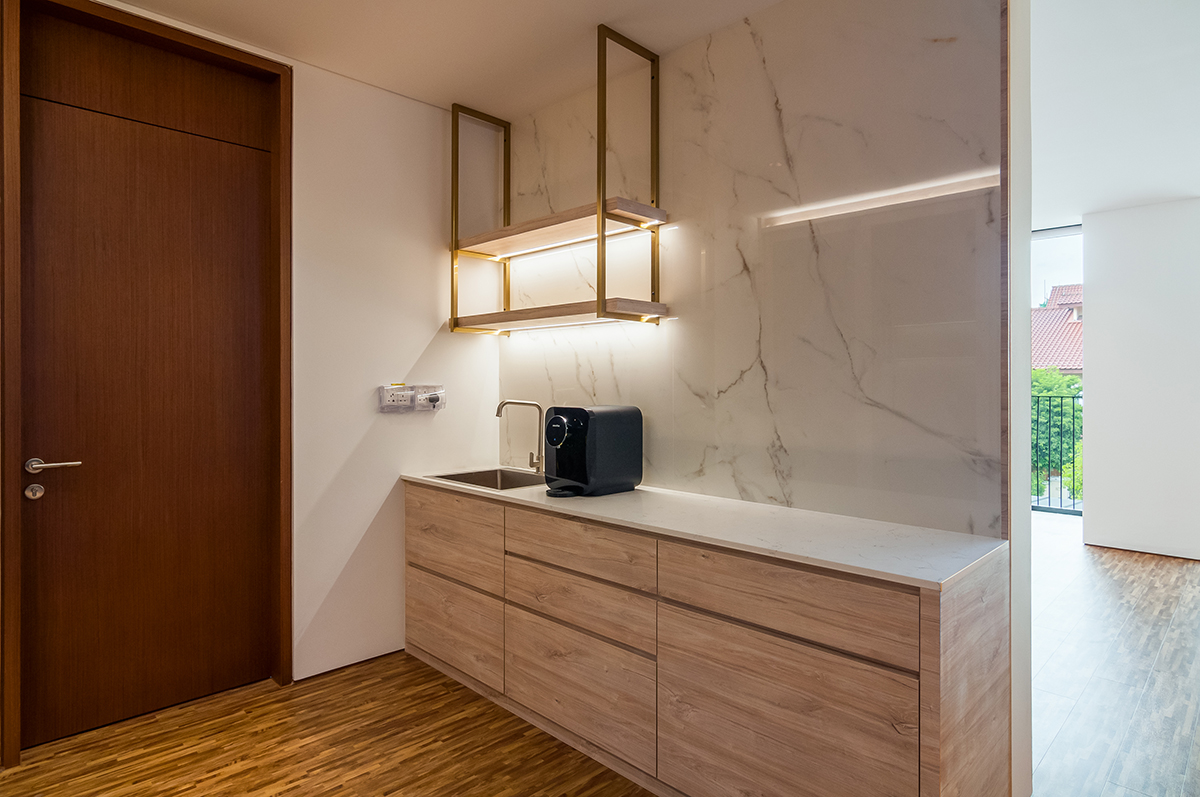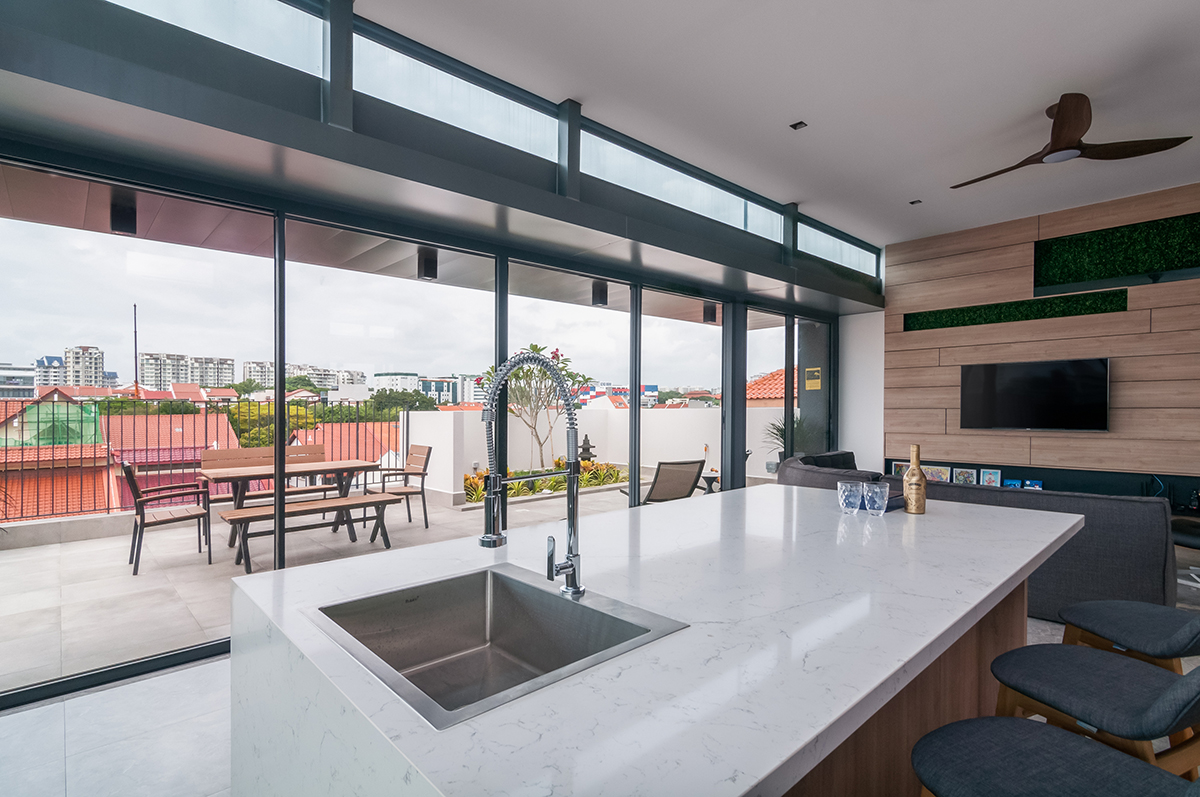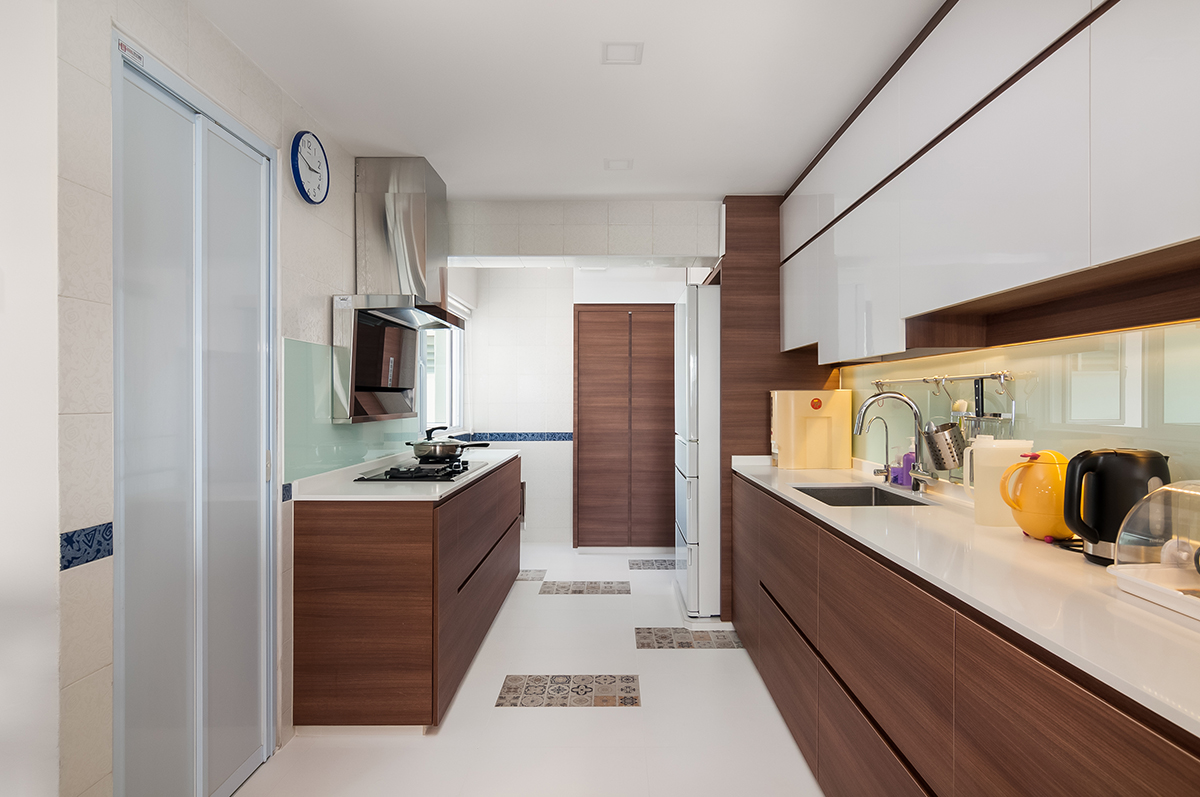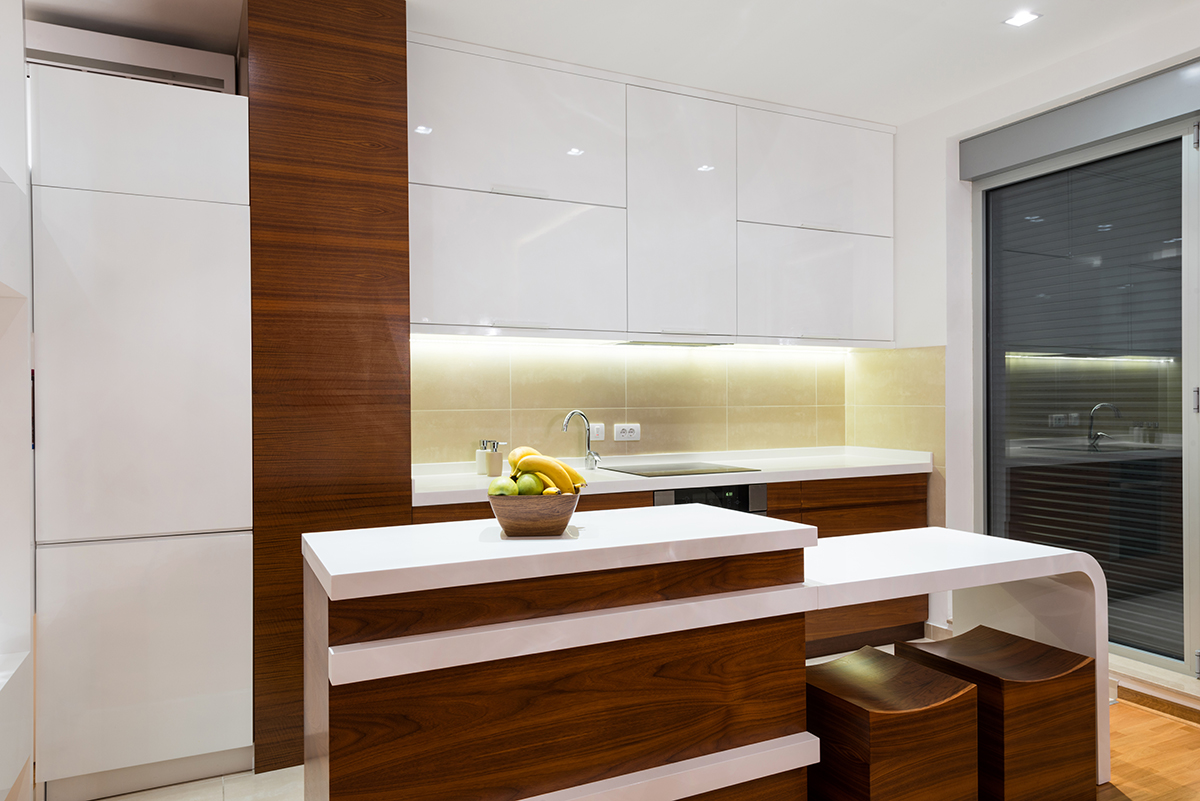With so many options to choose from, selecting the right material for your kitchen countertop can seem daunting. Not to mention that many materials offer similar benefits and overlapping features, making the process particularly confusing. If you find yourself overwhelmed by the world of countertop materials, here are Bellus Group‘s five factors to consider when comparing and choosing surfaces.
Your routine
Before you even think about things like durability and design, consider your own lifestyle and routine first. Someone who does a lot of heavy cooking and regular cleaning will have different needs from someone who rarely uses the kitchen. If you frequently place ingredients and lots of pots and pans on your countertops, you’ll want to opt for a surface material that is stain, scratch, heat and impact-resistant. Engineered quartz and sintered surfaces are particularly well-suited for this kind of heavy kitchen usage.
Durability

Sintered surface
Home renovations aren’t cheap, so it’s recommended that homeowners think of long-term solutions that don’t require frequent touch-ups. Your material choice should be resistant to heat, scratches, staining and everyday impact from cookware and crockery. Choosing the most durable material available to you can help maintain the value of your home in the long run.
Solid surfaces can be cast into a variety of shapes and are generally a durable and versatile option for the kitchen, being fairly non-porous. They can be simply sanded down to remove scratches and, when seamed correctly, they take on the appearance of continuous surfaces with no bothersome seams or joints, as these are concealed during installation. This makes for a long-lasting, low-maintenance kitchen that is easy to clean. Water damage will also be significantly reduced, as no water can seep through the seams. The only downside to solid surfaces? They are prone to stains and tend to suffer from discolouration over time, particularly if exposed to the sun.
Engineered quartz is one of the most durable materials on the market, generally scratch and impact-resistant, but it’s not the ideal option if you tend to place hot pots and pans on your countertops, as the heat can wear out the material over time. Like solid surfaces, engineered quartz can also suffer from discolouration.
Sintered surfaces, also known as Gardenia Slabs, are resistant to temperatures of up to about 300°C, making them more heat-resistant than any other type of surface material. This is especially handy in the kitchen, where heat-resistance is of course a must-have!
Maintenance

Quartz surface
Not all surface materials require the same kind and amount of care. Natural stone, such as marble and granite, requires special maintenance to keep it in good shape, particularly if it suffers from a stubborn stain. It may also require periodical sealing to ensure that liquids do not penetrate your countertop beyond the surface, staining and damaging it permanently.
Solid surfaces are not quite as sensitive, but they still require a certain level of care. Abrasive cleaning solutions are strongly discouraged, as they can damage the sensitive material, leading to the need to get the surface re-sanded and polished professionally. This makes solid surfaces overall more time-consuming to clean, as extra thought needs to go into the process.
Quartz, though very durable, may still require some extra care, especially when using solvents to clean up stains. The material’s risk of discolouration also means that it could do with some extra protection against damage from sun exposure. Should your engineered quartz surface suffer from burn marks during heavy cooking sessions, removing them will prove a difficult and time-consuming task.
Considering all of the above, we recommend sintered surfaces due to their practically maintenance-free nature. Liquids don’t penetrate the surface as it’s entirely non-porous, avoiding stains and eliminating the need for periodic sealing. A simple wipe-down with a warm cloth is enough to remove common kitchen dirt, while the surface is resistant to harsher chemicals for those deep-cleaning days.
Design and finish

Quartz surface
There’s no point denying it—your countertop makes a significant impact on the overall look of your kitchen, even more so if it’s applied to a kitchen island at the heart of the room. This means that choosing the right colour, pattern and finish to suit your design theme is crucial. Depending on what sort of aesthetic you’re looking for, different materials have different things to offer.
If unconventional shapes with bends and curves are what you’re looking for, nothing can beat the flexibility and adaptability of solid surfaces. These can be manipulated and fitted to your exact needs like no other material. Engineered quartz surfaces are not quite as flexible but come in an abundance of colours and finishes, ranging from polished to matte. They also boast a very realistic look, often mimicking popular textures like natural stone.
Sintered surfaces are the go-to option if you’re aiming for a natural look without compromising on durability and ease of maintenance. They come in a variety of designs with the look and feel of natural stone and real marble, yet without the porosity of those natural surfaces. Concrete textures and solid colours can also be found in the line-up of patterns, lending your home a touch of sophistication and luxury with the polished or matte finish of your choice. Plus, thanks to their consistent production and book-matching options, multiple Gardenia Slabs can be applied to large countertops and backsplash features while maintaining visual continuity and a greater sense of space by having few to no joints.
Cost

Solid surface
No matter how important durability and design are to you, what ultimately determines your choice of materials is likely your budget. Marble and other natural materials are notoriously expensive; considering their porosity and short lifespan, they are just not worth the money. Quartz surfaces are a good alternative, usually available at multiple price points depending on the brand, design and country of origin. Solid surfaces are on the more affordable end of the spectrum, but they do come with the downsides mentioned above.
Compared to solid surfaces and engineered quartz, sintered surfaces come with a heftier price tag. However, as opposed to natural stone, the Gardenia Slabs justify their higher price point with their durability and low-maintenance nature, adding longevity and value to your home where other materials cannot. Even then, sintered surfaces can be tailored to suit your personal needs and budget, making them viable for renovations both big and small.
This post was brought to you by Bellus Group.



